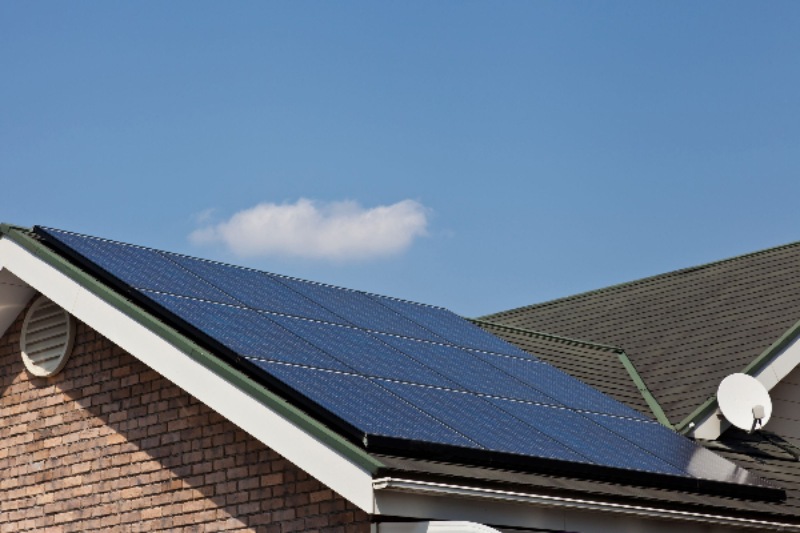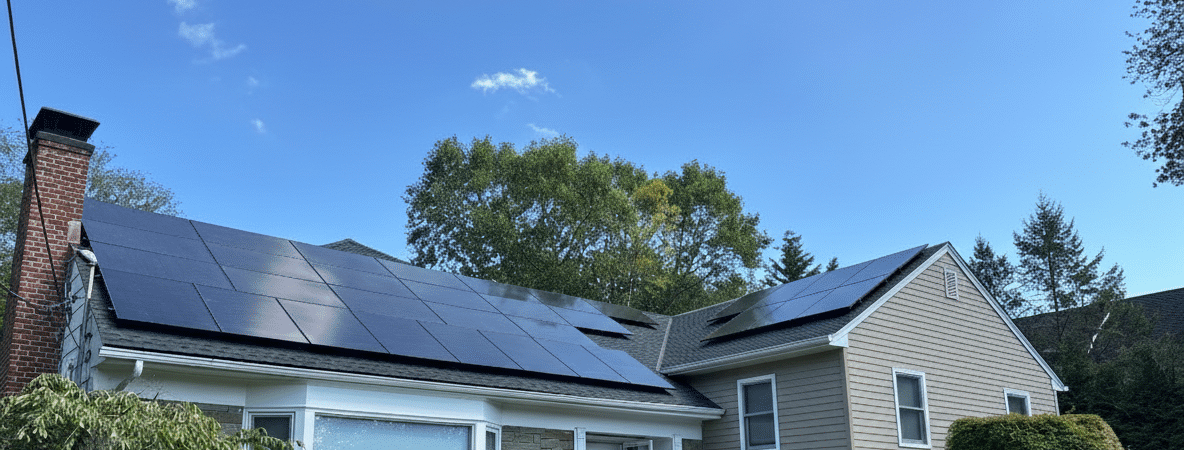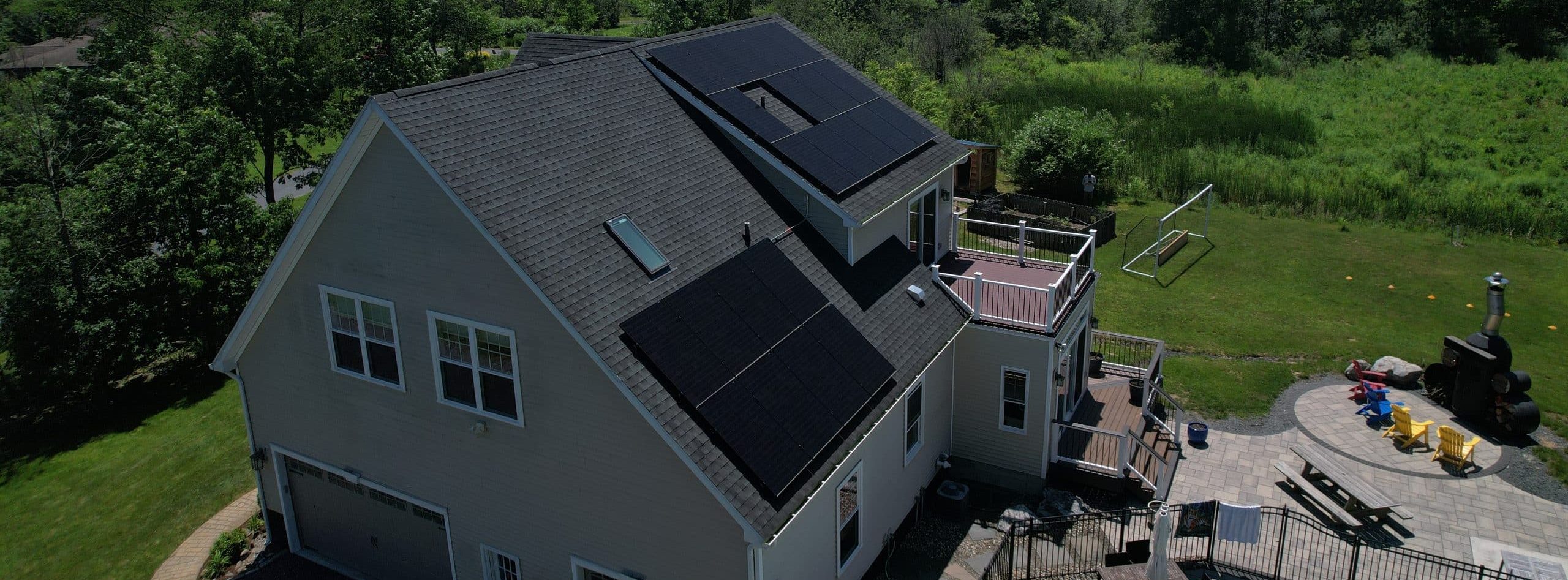There are several comprehensive steps you can take to breakdown your residential solar installation cost New Jersey. Solar energy is one of the most accessible forms of renewable energy that you can use to power your home. Increasingly, NJ property owners are tapping into the sun’s energy supply to save on their monthly electric bills and support environmental conservation efforts. With the growing popularity of photovoltaic panel installations, you may have questions regarding the cost of your installation. There are many factors to consider that influence the price of your installation and sustainable energy equipment. If you are interested in installing rooftop solar panels in NJ, read on to learn about how to breakdown your residential solar installation cost New Jersey.
Consider Your Rooftop Characteristics
To breakdown your New Jersey residential solar installation cost, you should first consider your rooftop characteristics. The characteristics of your current NJ home can play a key part in determining your total PV panel installation costs. For example, if you have a south-facing roof that slopes at approximately a 30-degree angle, installation is typically fairly easy. This is because solar contractors usually do not have to make additional accommodations to mount your renewable energy equipment to your roof. On the other hand, if your residential rooftop has multiple levels, dormers, or skylights, the NJ solar installer will likely have to accommodate this. As a result, there can be slight additional costs to your installation. In your cost breakdown for your NJ solar panel installation, you need to consider your rooftop characteristics.
Evaluate Panel Material Prices
In addition, you need to evaluate panel material prices when breaking down the cost for your residential PV installation. One of the largest costs to evaluate is that of getting solar panels in NJ. Typically, solar professionals allow you to choose from monocrystalline, polycrystalline, or thin film solar panels for your NJ residential installation. Monocrystalline panels can potentially offer you the highest energy efficiency rating while taking up the least amount of space. Because they are made of high purity silicon, they usually have a long life expectancy but tend to be higher in price per watt. Polycrystalline panels have a slightly lower efficiency rating, and as a result are typically lower in cost per watt. Alternatively, thin-film technology layers PV material on metal or glass. While they tend to have a shorter lifespan, they can be more cost-effective for families on a stricter budget. To breakdown the cost of your NJ residential solar installation, it is essential to evaluate panel material prices.
Purchase Required Mounting Hardware
Moreover, in your cost analysis, you will also need to assess required mounting hardware. Undoubtedly, solar panel mounting hardware and the amount of racking equipment you need will affect your final price. Racking equipment is used for fastening the panels to your New Jersey rooftop and connecting the panels to one another. Depending on your roof characteristics, local weather patterns, and system size, your solar engineer will likely recommend certain mounting and racking hardware. The power inverter that your solar installation company chooses will likely also impact your cost. In your cost breakdown for your New Jersey residential solar system, it is imperative to assess required mounting hardware.
Compare Solar Installation Companies
Additionally, you need to compare PV installation companies in your price breakdown for your sustainable energy system. Different installers offer different labor rates. While these often vary based on the size of the array, homeowners should get a quote from solar companies before signing any contractual agreements for installation. Optimally, you should also consider the experience of your New Jersey solar installation professionals. A subpar installation can cost you more later in repairs and maintenance. While top-rated solar engineering experts may charge more upfront, their experience can often ensure a reliable, sound investment. When breaking down the cost of your residential rooftop solar system New Jersey, be sure to compare solar installation companies for both price and professional experience.
Apply Savings From NJ TRECs
Furthermore, you also need to apply savings from NJ solar incentives in your cost analysis for your renewable electric power system. For example, you can obtain NJ TRECs (transition renewable energy certificates) to help you earn a return on your sustainable investment. TRECs are a reliable performance-based incentive to compensate you for renewable energy produced. The TREC program was originally introduced to replace New Jersey’s widely popular SREC program. The major difference between the two programs are that TRECs are factorized, meaning that different solar panel systems receive different levels of subsidies. When breaking down your PV panel installation cost, it is essential to apply savings from NJ solar incentives.
There are several comprehensive steps you can take to breakdown your residential solar installation cost New Jersey. First, you should consider your rooftop characteristics in your analysis. Then, evaluate panel material prices and efficiencies for your system. Next, you should work with your solar engineer to assess your required mounting hardware. In addition, it is essential to compare PV installation companies for both prices and expertise. Furthermore, to accurately analyze your renewable energy cost, apply savings from NJ solar incentives. Consider the points mentioned above to learn about how to breakdown your residential solar installation cost New Jersey.












